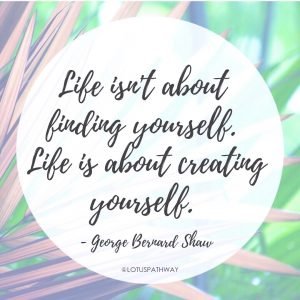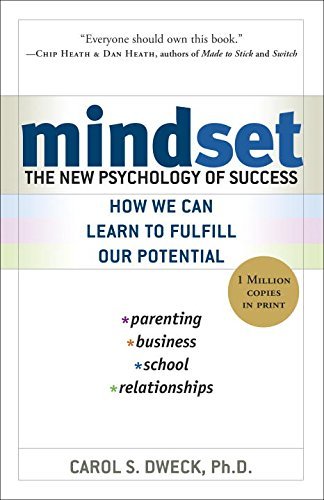Unblocked: How Changing My Mindset Got Me Started

You might benefit from this post if you:
- Have an idea but can’t get started
- Are scared to try something new
- Have a fear of failure
- Seem to be stuck at the starting line because success isn’t guaranteed
Creative Expression
For the past couple of years, I have been trying to discover my passion. Inevitably, when you meet someone new you share the elevator pitch of your life’s story (born in Sri Lanka, moved to San Diego when I was two years old, went to USC, had a series of deeply meaningful but ultimately unsuccessful relationships…) and then the question of what truly excites you comes up. The question arises in so many different forms (“So what do you do for a living?”, “What’s your passion?”, “What would you do with your life if money was no object?”) and instead of having incredibly thoughtful responses to each, my answers were bland: “project management”, “travel and reading”, and “umm...I’m not exactly sure.” One night at dinner a new friend asked me how I creatively express myself.
I was stuck.
Creatively express myself?? “Is reading creative?” I jokingly asked. But the question really got me thinking. I enjoy my job, and I love all the people that I get to work with, but was being a planner or an executive my true passion? Would I do it even if I didn’t get paid to work there? Honestly, no. So then what did I really love?
I brought up my dilemma with two of my closest friends. Because they love me, they reassured me that I was plenty creative even though I wasn’t a musician, an artist or a photographer. That’s what good friends do, but unfortunately, their encouragement hadn’t satisfied my need for a great answer to this question. Next, I consulted my personal coach, Dr. Bren Hudson (I like to think of her as a “soul coach” or spiritual therapist; more about her in a future post). In all of her brilliance, she said that I was my creative expression; that all of my reading and personal exploration and development work manifested itself as I created a new version of myself each day.
I loved this answer! It felt right. It fit. It was true. But it wasn’t quite complete.
I returned to my good friends and shared the exciting news. “You guys! I am my creative expression!” They chuckled supportively and said they had tried to tell me the same thing in a different way. It was true. They had long been telling me that they enjoyed hearing about what I was learning and how I was putting it into practice. They would occasionally groan as I told them about another new must-read book they had to put on their Audible playlist, but almost always indulged my suggestion and would later come back to discuss the ideas in the book with me.
So now what?

Inspiration
I decided to spend Memorial Day weekend in Sedona, a place that boasted of magical energy and magnificent scenery. To my surprise, the magic had worked within a mere 12 hours of my arrival in the energy vortex.
As I sat on my first morning admiring a view of gorgeous red hillsides, inspiration hit me: I need to start a blog! A blog where I can share all that I am learning with people who might be on the search for the answer to their current question: what’s my next step?
I had previously (and very briefly) considered the idea of writing a book, but I had no clue what I would write about, and imposter syndrome hit me hard with a “You’re not an author!” smack in the face. The “I should write a book” plan had intermittently floated around in my brain for years before it was decidedly placed on the "Shelf of Discarded Ideas." The idea of a blog had also popped into my mind in the past, but at the time I wasn’t ready to open myself up in a public-on-the-internet-for-everyone-to-see sort of way. To be honest, I am still not ready, but I’m doing it anyway.
I returned from Sedona with a clear vision for my blog and my desire to write, and share was strong, but three weeks after my inspirational moment I still hadn’t written a word. Why?
Stuck
Have you ever had a brilliant idea for a new business or book or project? Did you write all sorts of notes down about it and start putting together a plan? Could you visualize the end result so clearly so that you felt almost real? I think many of us have been there: on the edge of inspiration and excitement with potential bursting from our hearts and minds. Then our life resumes, and we get swept away by our daily responsibilities and tasks lists, watching our inspiration float slowly away but still vowing that when we get home tonight or have a few hours this weekend, the inspirational energy will return and refocus to start making our dreams a reality.
This is exactly where I was stuck.
At this stage, a lot of people actually create the time and space to begin bringing their ideas to life. They commit to writing one page a day of their burgeoning novel. They spend Saturday afternoons on their woodworking project. They begin iterating on new product ideas in their basement in the mornings before they start their day job. But many of us never leave the idea stage.
Occasionally it’s because the idea wasn’t “the one” that we were meant to pursue and that’s why it sits on a hidden shelf in our mind, collecting dust with all the other half-baked ideas. But sometimes we know deep down that this is the idea that we need to actualize or we will move through our lives with palpable pangs of regret. Yet even with the fear of regret looming, we still can’t begin.
Why is that?
 Mindset
Mindset
One theory is that the differentiating factor of those who begin and those who don’t is their mindset. In her book, Mindset: A New Psychology for Success, Carol S. Dweck describes how different mindsets affect how we approach everything in our life from school, work, relationships, and parenting.
Fixed Mindset: Those who believe abilities are fixed
Bill Gates wrote a blog post reviewing this book and summarized the fixed mindset as follows:
Here is Dweck’s thesis: Our genes influence our intelligence and talents, but these qualities are not fixed at birth. If you mistakenly believe that your capabilities derive from DNA and destiny, rather than practice and perseverance, then you operate with what Dweck calls a “fixed mindset” rather than a “growth mindset.”
Things you might catch yourself saying if you have a fixed mindset:
- I'm not good at...
- I've always been good at...
- I knew I wouldn't be able to do this
- I probably wouldn't have won/succeeded/made it anyway
- I don't have the personality/body/skill for this
- This isn't me
Growth Mindset: Those who believe abilities can be developed
I would describe the growth mindset as a belief that, with intent and effort, you can change or develop any number of abilities.
Things you might catch yourself saying if you have a growth mindset:
- I've never done this before, but I'm going to try it anyway
- I may have failed at this the first time, but I know I can get better
- I worked hard at this and am proud of the effort I put in
- I'm glad I tried
- I gave it my best, and that's what matters
The Formation of My Success-Driven Brain
I called upon a friend to help me understand why I couldn't start writing and during our conversation, the blocker revealed itself to me in all its obvious glory. For my entire life, my parents (whom I love dearly and am eternally grateful to) expressed their strongest emotions of love and pride when I accomplished things.
When I was in elementary school and qualified for the GATE (Gifted and Talented Education) program, they were beyond ecstatic. They knew their child was gifted and now the world was beginning to recognize it too. When I was selected to be first chair in flute in my school orchestra, they beamed. When I won karate competitions, they proudly displayed my medals and wouldn’t stop talking about it for weeks. In fact, my childhood successes still come up regularly in our conversations. I’m 37 years old and last week they nostalgically reminded me of my karate championship wins from I was 14.
Naturally, this continued throughout my life: my parents were thrilled as my career progressed and their faces lit up last year when I shared the news of my latest promotion to a Vice President role. While I know my parents love me unconditionally, my ego has been conditioned to associate expressions of love with significant accomplishments. So what did I do? I only attempted those things where I had a high likelihood of success, where I could either be the best or at least demonstrate consistently high achievement.
Abandon Before Failure
After we had identified the root cause of my tendencies, my friend reminded me of the many hobbies I had attempted to adopt over the years. I tried my hand at sewing and after investing a fair amount of money in a brand new sewing machine, a full sewing kit and several yards of cloth to make my Paris-worthy fashions, I abandoned it after completing a 6-week introductory sewing class. I was able to follow the instructions well enough, but I wasn’t a natural. I couldn't easily sew a simple skirt let alone a full fall collection.
After abandoning the idea of writing a book because I didn’t feel like I had anything meaningful to share, I thought that maybe screenplays were my medium. I loved telling stories, and perhaps the format of the screenplay was precisely what I had been looking for. I bought several books on the arts of storytelling and screenplay writing, downloaded the necessary software (but only the free version; I had learned my lesson of over-investing too early), and began writing a feature-length script. But then I started researching how to get screenplays turned into movies and quickly became overwhelmed with both the process and the number of people who were trying to do the same thing. Screenwriting was starting to feel like it wasn’t meant to be my “thing.” So I abandoned the project before a full screenplay was even written, let alone submitted.
"Nothing is harder than saying I gave it my all and it wasn’t good enough." - Carol S. Dweck
Not Trying Means You Can’t Fail
After considering my upbringing and reflecting on my abandoned projects, I realized that I had never given 100% to anything unless my success was all but guaranteed. Even when taking on new roles or responsibilities that might require me to go beyond my comfort zone, I felt relatively confident that I would eventually (if not immediately) achieve success.
To be clear, I rarely ever jumped out of my comfort zone; I preferred to nudge the edges out just a bit. Excellence was not optional for me; it had to be just a matter of time. If I sniffed a hint of potential failure, I doubled-down, worked harder, learned what I needed to learn and eventually reached some imaginary finish line of success, but only if I knew I had the ability to reach it. I had no problem going all in if I knew I would eventually achieve my goal but a guarantee was a prerequisite to leaving the starting blocks.
"The idea of trying and still failing is the worst fear of the fixed mindset.”- Carol S. Dweck
My Fixed Mindset
When I first started reading the book, I never considered that maybe I had a fixed mindset since I spent so much time reading and working on my personal growth and development. However, in understanding a fixed mindset from Dweck’s perspective, I had to admit that my belief that my abilities were limited was the thing preventing me from starting or finishing so many things. While there are some areas of my life where I have a growth mindset (e.g., I decided to start doing yoga without an expectation of ever being able to attend advanced classes), I was highly ability-focused instead of effort-focused in so many areas of my life.
A New Growth Mindset: Learning > Achieving
I've come to learn that abilities and talents are never fixed. In the book, there are countless examples of people who either developed new abilities they didn’t have initially, or they further developed their natural talents. These stories were so inspirational and served as proof that with intent, effort, and the right attitude, we can do anything.
As I realized that the most important thing for me to do was just try and to put forth the effort, I quit overthinking things, stopped imagining what success would look like and just started writing. Who knows whether anyone will read this post. What matters to me now is that I started without any guarantee of success and am doing it purely because it makes me happy.
I know that with continued effort, I will improve my writing over time and I hope that this new way of approaching life will become a part of everything I do. I never want to look back at my life and see that I missed an opportunity to grow because wasn’t gifted with a particular ability from the start. If it excites me, if it matters to me, I am going to put in the effort.
A Next Step
If you are in a similar place or even if you’re just now realizing that there may be areas of your life where you have a fixed mindset, I encourage you to read the book. Learn more about how our mindsets come to be shaped over time and consider what changes you might make to live with a growth mindset rather than a fixed one.
If you’re not much of a reader (although you must be if you made it to the end of this long first blog post) then perhaps just pause to consider your approach as you begin new endeavors and remember that whether or not you already have the ability, your effort and willingness to learn is what matters.
